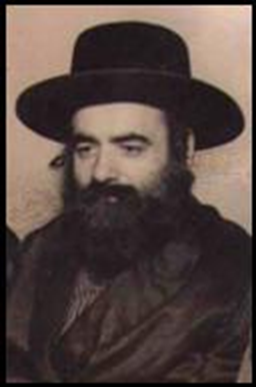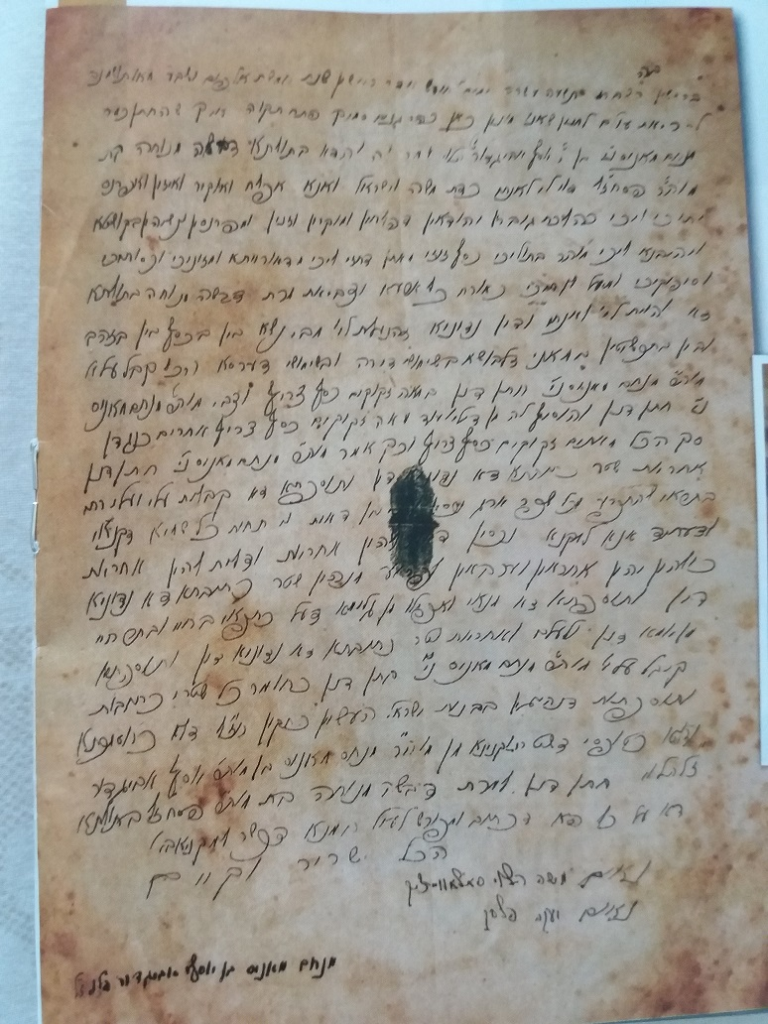Father of Orphans
75 years since the passing of the genius tzaddik (righteous) Rabbi Mordechai of Bilgoraj z”l
By: Yaakov Rosenfeld
The Rabbi of Bilgoraj, Rabbi Mordechai Rokeach z”l, escaped from burning Europe at the last moment, but unfortunately faced great sacrifices; his wife and only daughter were killed after fleeing from Bilgoraj, Poland to the city of Kobryn, where the rebbetzin’s (rabbi’s wife) family lived.

Rabbi Mordechai Rokeach of Bilgoraj z”l
Everyone saw his soul’s strength in the first years of his settlement in the Land of Israel. From the time he received the horrific news about his family, he did not sink into despair or sadness. He invested all his strength and energy into building and creating. In addition to being the right-hand man of his brother, Rabbi Aharon of Belz (the Belzer Rebbe), in re-establishing the holy court and the institutions of Belz, he was also known as as “father of orphans.” He would take care of the orphans’ needs, which were not lacking at the time, raising many of them until he was privileged to establish homes for them. There are many photos taken at the weddings of Holocaust survivor orphans, where the rabbi served as a father, mother, and rabbi, while he himself could have been broken and shattered, for he had arrived in the Land of Israel alone, and all those dear to him had remained in the Valley of Tears and ascended to Heaven in the furnaces. A few years after arriving in the Land of Israel, he remarried, and from this marriage his only son was born, namely, the current Belzer Rebbe.
The Rabbi of Bilgoraj was a great Torah scholar and a faithful leader to his congregation. His city, Bilgoraj, was a major Jewish community, and most of its residents, between the two worls wars, were Jews. Of the thousands of Jews in the city, only a few remained, and out of the upheaval, out of the cloud of bereavement and disaster, Rabbi Mordechai Rokeach succeeded in rebuilding and was honoured to establish a memorial for the magnificent Belz chasidism, whose resurrection today, after the Holocaust, in which thousands of its followers were killed, is nothing less than a revealed miracle. Who would have believed or imagined it…
When his only son was a year old, the rabbi became ill and passed away. He was only 49 years old when he passed away from a heart attack.
As mentioned, the Rabbi served as the “father of orphans” during those dark days, and his death at a young age shocked the Jewish People, and in particular his protégés, the war orphans for whom the Rabbi was a stronghold and support, and who cared for their affairs as a father would for his children.
And this is the story of one of the orphans over whom the Rabbi extended his protection, and one of which the Rabbi brought between the poles of the chupa (marriage canopy) with joy and excitement.
Manis Miller was the name of the young man, a war refugee, who immigrated alone to the Land of Israel and was sheltered by the Rabbi of Bilgoraj. Menachem Manis Miller was from the city of Dukla in Galicia.
Little by little, he gained hope, little by little he recovered, gradually building himself up to the heights under the watchful eyes of the Rabbi of Bilgoraj, the “father of orphans,” until he was privileged to become engaged to his bride, also a Holocaust survivor orphan.
With toil and sweat, and many tears and longings, the bride and groom prepared themselves for the wedding, with the spirits of their dear and beloved ones who would attend hovering above them at all times, those who did not even have a grave to place the invitation on.
The bride and groom prepared for the wedding, the Rabbi of Bilgoraj also prepared for the wedding in which he would officiate, the few friends prepared for the wedding, and in a small hut, in “Kfar Ganim” in Petach Tikva, where the wedding was also to take place, the supplies that the bride and groom managed to arrange for themselves for their new home were stored.
The day before the wedding, Arabs infiltrated Kfar Ganim and set fire to the meager hut where all the bride and groom’s necessities, as well as their wedding clothes, were stored. The hut and its contents burnt down and the bride and groom were left with nothing, and were forced to borrow clothes for their wedding.
When the rabbi arrived, he saw the groom sitting and crying profusely. Someone approached the groom and tried to stop his crying. He told him: “There’s no need to cry so much.” And the rabbi, from the side, whispered to the groom: “You can cry. You are allowed to…” And then it became clear that the ketuba (marriage contract) that they had prepared in advance had also been burned and was no more.
Without saying a word, the rabbi sat down and wrote a new ketubah, and only then did they all go out together to the chupa.
Menachem Manis was blessed to establish a beautiful generation, and in the twilight of his days, when he was blessed to bless the (current) Belzer Rebbe on the wedding day of his only son, Rabbi Aharon Mordechai Rokeach, the Belzer Rebbe said to him: “Greetings from your ketubah”… It turned out that the Rebbe, before preparing the ketubah for his only son, had long studied that ketuba, which was written by his holy father z”l.
The ketuba of Menachem Manis Miller
















